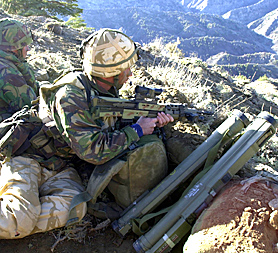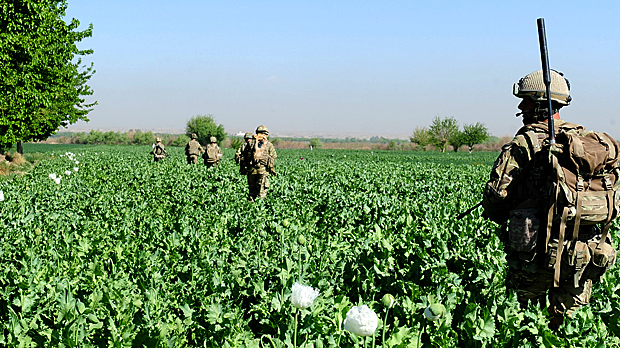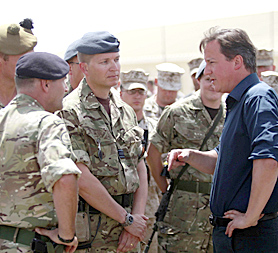Britain to withdraw 500 troops from Afghanistan
The Prime Minister, David Cameron, announces the drawdown of a further 500 troops by the end of 2012, as Britain winds down its combat role in Afghanistan.

Mr Cameron said the number of British troops in Afghanistan will be reduced to 9,000 next year, reiterating previous commitments to a full handover of responsibility by the end of 2014. This follows a previous announcement to withdraw 426 UK military personnel by February 2012.
Speaking to MPs on the eve of the sixth anniversary of 7/7, Mr Cameron insisted that the faster withdrawal of US troops, ordered by President Obama, would not overburden the shrinking number of British troops.
“For evey US soldier that leaves, two Afghans will take their place,” he said.
Barack Obama announced last month that 10,000 troops deployed as part of the so-called “surge” strategy would be coming home by the end of this year, and another 23,000 next.
“We are now entering a new phase in which the Afghan forces will do more of the fighting and we will do more of the training,” Mr Cameron added.
The PM said Britain’s overriding reason for sending troops to Afghanistan had always been “to ensure our own national security by helping the Afghans improve theirs”.
We are now entering a new phase in which the Afghan forces will do more of the fighting and we will do more of the training. David Cameron
In 2009, three-quarters of terror threats to Britain had links to Afghanistan, he said, but this has now “reduced significantly”.
“After 2014 the UK will continue to have a major strategic relationship with Afghanistan… Although our forces will no longer be present in a combat role, we will continue our military presence,” he said.
“This decision is not only right for Britain, it is right for Afghanistan too,” he said. “It has given the Afghans a clear deadline against which to plan and has injected a sense of urgency into their efforts.”

Labour leader Ed Miliband voiced his support for the Prime Minister’s plan, adding: “This year and next we must maintain the combination of military pressure, accelerated build up of the Afghan security forces and work on basic governance and justice.
“This will give our forces the best chance of consolidating the situation before the process of transition to Afghan control accelerates in 2012 and 2013 when our forces can start to come home in greater numbers.”
‘Sandhurst in the Sand’
“For all its imperfections, Afghanistan has come a long way,” Mr Cameron said, with the Afghan forces now ready to take over responsibility.
“Although we want to stand by Afghanistan we can only do so on the basis that Afghanistan must help itself too”
The PM confirmed plans announced in Kabul earlier this week for a military academy – dubbed “Sandhurst in the Sand” – to train Afghan army officers in preparation for Britain’s exit.
Speaking alongside Afghan President Hamid Karzai, Mr Cameron said the Afghan operation is moving into a new phase.
“We can see an increasingly confident Afghan National Army and Afghan National Police Force able to carry out more operations on their own and able to respond to more incidents on their own.”
Special report on Afghanistan: taking on the Taliban

‘True grit’ soldier
Mr Cameron’s visit on Monday came amid a massive 17-hour search for a British soldier, whose body was found after he went missing from a Nato checkpoint in central Helmand province.
Highlander Scott “F1” McLaren of 4th Battalion, The Royal Regiment of Scotland, was found dead with gunshot wounds, but the circumstances of his death are still unclear.
“Quiet and reserved, he had the true grit and determination of a traditional Highlander; when the times got tougher it was always “F1″ who was still standing at the end,” said Lieutenant Colonel Alastair Aitken MBE.
Friends and family paid tribute to the 20-year-old today. A statement released by his family said: “We are deeply saddened by the news that our dear son Scott was killed in Afghanistan. We were extremely proud of Scott. He loved the Army and despite his short time in 4 SCOTS had made many friends.”
